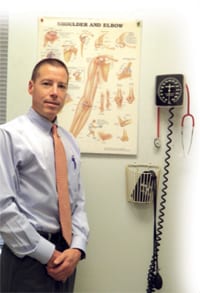Be Good to Your Heart
Last month was American Heart Month and also Valentine’s Day, when we typically think about the ones we love and the need to take care of our hearts. However, as heart disease remains the leading cause of death among American men and women, we must be good to our hearts year-round. That includes keeping up with the latest medical studies about how to minimize cardiovascular risk and optimize heart health.
• Heartbreaking news. We’ve known for some time that grief over the death of a loved one is associated with depression, anxiety, and anger. Research now tells us that bereavement is also linked to higher risks for heart attacks. A recent study showed that heart-attack risks increased 21 times within a day after the death of a significant other. Risks were also almost six times higher after the first week of death.
This study is important for those who are grieving, as well as their caretakers and healthcare providers, who should understand the increased level of vulnerability brought on by emotional loss. There should be heightened awareness about heart-attack signs like chest discomfort, upper-body pain, shortness of breath, cold sweats, nausea, or light headedness. Any of these symptoms require prompt medical attention. Those affected should also seek social and psychological intervention as needed.
• What’s heart-healthy? We’re frequently reminded about the benefits of a hearthealthy diet and cardiovascular exercise, but what about coffee, chocolate, and alcohol?
While the American Heart Assoc. warns about excessive coffee consumption, the latest research shows a protective benefit. The strongest protection against heart failure came with two eight-ounce servings of American coffee per day. However, protection decreases beyond two cups and may cause harm at more than five cups a day. Drinking coffee also lowers the risk for type 2 diabetes. And when consumed in moderation, there’s no negative effect on blood pressure for most people.
Chocolates contain flavonoids that act as antioxidants to protect the body from free radicals, which can lead to heart disease. Flavonoids may also reduce the risk of high blood pressure and atherosclerosis (artery hardening), as well as heart attacks.
In one study, people who ate chocolate once a week had a 44{06cf2b9696b159f874511d23dbc893eb1ac83014175ed30550cfff22781411e5} lower risk of heart failure, while those who indulged twice a week reduced their risk by 66{06cf2b9696b159f874511d23dbc893eb1ac83014175ed30550cfff22781411e5}. Preferred portion size is about one-fourth of a regular sized chocolate bar, and the darker the chocolate, the better. The heart-healthiest dark chocolate has at least 60{06cf2b9696b159f874511d23dbc893eb1ac83014175ed30550cfff22781411e5} cocoa solids. But chocolate is still a high-calorie, high-fat food. A typical 1.5 ounce of dark chocolate can contain as many as 220 calories, 17 grams of fat, and 23 grams of carbs, so moderation is key.
What about alcohol? Many studies show that light to moderate drinking can be good for your heart, but more than two drinks for men or one for women per day may increase the chance of health problems.
• What to avoid. We know the traditional risk factors associated with heart disease: smoking, sedentary lifestyle, and poor diet. New research shows findings concerning the physical, psychological, and chemical triggers of acute cardiovascular events.
Regular exercise is one of the most important ways to stay healthy and decrease risk of heart disease. However, strenuous activities like snow shoveling, particularly for habitually sedentary people at increased cardiac risk, is not advisable. Patients with heart disease should talk with their physicians to discuss the safest way to begin a new exercise program.
Evidence shows that anger, depression, anxiety, and work stress may lead to heart attacks, as can events outside of our control, such as environmental disasters and terrorist activity. Finally, chemical triggers like binge drinking, heavy meals, and cocaine and marijuana use can all precipitate heart attacks.
The best way to avoid a heart attack caused by these types of stressors is to keep your risk factors under control. Quit smoking and avoid second-hand smoke; eat a balanced, heart-healthy diet; exercise regularly; and have your blood pressure and cholesterol checked and maintained through lifestyle changes and medications if needed. What’s the takeaway this season and throughout the year? Review the latest research, consider your risk factors, and practice moderation.
Dr. Murray A. Mittleman is a cardiac researcher at the CardioVascular Institute at Beth Israel Deaconess Medical Center and Harvard Medical School, and director of the master’s program in Public Health at the Harvard School of Public Health. This article is a service of the Mass. Medical Society.

